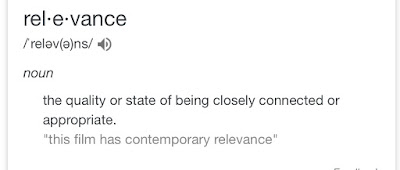Have you ever heard Ray Charles' version of America the Beautiful? If not, click the link and take a listen. It is a beautiful rendition. He takes some artistic liberty to change the lyrics a bit, which changes the author, Katharine Lee Bates, intention when she wrote the poem in 1893, inspired by her journey to Pike's Peak in Colorado. Read these lyrics:
O beautiful for spacious skies
For amber waves of grain
For purple mountain majesties
Above the fruited plain!
America! America!
God shed his grace on thee
And crown thy good with brotherhood
From sea to shining sea!
O beautiful for pilgrim feet
Whose stern impassioned stress
A thoroughfare of freedom beat
Across the wilderness!
America! America!
God mend thine every flaw
Confirm thy soul in self-control
Thy liberty in law!
O beautiful for heroes proved
In liberating strife
Who more than self their country loved
And mercy more than life!
America! America!
May God thy gold refine
Till all success be nobleness
And every gain divine!
O beautiful for patriot dream
That sees beyond the years
Thine alabaster cities gleam
Undimmed by human tears!
America! America!
God shed his grace on thee
And crown thy God with brotherhood
From sea to shining sea!
O beautiful for halcyon skies
For amber waves of grain
For purple mountain majesties
Above the enameled plain!
America! America!
God shed his grace on thee
Till souls wax fair as earth and air
And music-hearted sea!
O beautiful for pilgrims feet
Whose stem impassioned stress
A thoroughfare for freedom beat
Across the wilderness!
America! America!
God shed his grace on thee
Till paths be wrought through
Wilds of thought
by pilgrim foot and knee!
O beautiful for glory-tale
Of liberating strife
When once and twice
For man's avail
Men lavished precious life!
America! America!
God shed his grace on thee
Till selfish gain no longer stain
The banner of the free!
O beautiful for patriot dream
that sees beyond the years
Thine alabaster cities gleam
undimmed by human tears!
America! America!
God shed his grace on thee
Till nobler men keep once again
Thy whiter jubilee!
Now, the lyrics are dated and perhaps 125 years later there are things we should not care to understand about it. But there is something within this song that I believe we have missed.
I grew up singing this song as an acclamation of what G-d has done for America. We sang it as a declaration of America's greatness. Ray Charles sings it as such; however, Bates wrote this song as a prayer, as a longing for G-d's intervention. Doesn't that change it quite a bit? Re-read it. Read it as a cry to G-d for mercy.
You see, I think Bates, a woman living a fairly bountiful life, yet still oppressed for her gender and her orientation, understood something. That day standing on Pike's Peak she realized that for as beautiful as this nation was, for all that had happened to get us to that day 125 years ago, where she could pen these infamous words; there was still so far to go.
This poem was NOT etched as a declaration of superiority, but instead it was penned as a supplication for mercy, for humility and for freedom. It was a prayer for something more than what was. It was a prayer for America to be the land of the free that it longed to be when it adopted these words on July 4, 1776:
"We hold these truths to be self-evident, that all men are created equal, that they are endowed by their Creator with certain unalienable Rights, that among these are Life, Liberty and the pursuit of Happiness."May this song become a prayer again! May we today stand, like Katharine Lee Bates, on the beauty of the world that G-d has created and cry out to G-d for something more, for our nation to be the nation of freedom for all; a nation of brotherhood; in which more than self we love others and seek mercy for all; a nation that dreams paths that are wrought in wilds of thoughts; a nation that selfish gain is no longer our stain, but instead we fly the banner of the free and continue become better beyond what our eyes can see!









